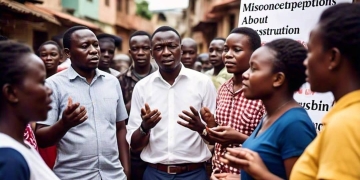
JUBA —A new report released by the United States Department of State last week titled ‘2022 U.S Trafficking in Persons Report’ has faulted the South Sudanese government for not fully meeting the minimum standards for the elimination of trafficking in persons.
According to the report, even considering the impact of the COVID-19 pandemic, on the government’s anti-trafficking capacity, is not making significant efforts to do so; therefore South Sudan remained on Tier 3.
“Despite the lack of significant efforts, the government took some steps to address trafficking, including convening its anti-trafficking inter-ministerial task force, finalizing the 2021-2023 National Action Plan (NAP) to Combat Trafficking, and conducting awareness activities,” the report reads. “However, during the reporting period, there was a government policy or pattern of employing and recruiting child soldiers.”
The U.S State Department of State said the South Sudan government security and law enforcement officers continued to forcibly recruit and use child soldiers and did not hold any members of the South Sudan People’s Defense Forces (SSPDF) or South Sudan National Police Services (SSNPS) criminally accountable for these unlawful acts.
“Authorities did not report investigating or prosecuting any forced labour or sex trafficking crimes for the 10th consecutive year,” it read. “The government did not report identifying or assisting any victims and continued to penalize victims for unlawful acts their traffickers compelled them to commit.”
The report recommended the prioritization in the ceasing of all unlawful recruitment and use of children by government forces and associated militias and the immediate demobilizing of all child soldiers under the command or influence of government forces and affiliated militias.
“Vigorously investigate and prosecute suspected traffickers, including complicit government officials. Train law enforcement and social workers to identify trafficking victims, particularly among vulnerable groups such as children, individuals in commercial sex, internally displaced persons,” the report recommended. “Provide additional financial and staffing support to the SSPDF’s Directorate of Child Protection to facilitate efforts to identify perpetrators of child soldiering and refer cases to civilian courts.”
“Draft, finalize, and implement victim identification screening and referral procedures in partnership with international organizations and civil society,” it added.
The report also recommended the amendment of the 2008 Penal Code or the passing of a comprehensive anti-trafficking law to criminalize adult sex trafficking and prescribe penalties that are sufficiently stringent and commensurate with other grave crimes, such as rape.
According to the U.S. Department of State, the South Sudan government continued to demonstrate negligible law enforcement efforts.
“The 2008 Penal Code, 2008 Child Act, and 2018 Labor Act criminalized some forms of sex trafficking and labour trafficking. Article 277 of the penal code prohibited forced labour and prescribed penalties of up to two years’ imprisonment, a fine, or both; these penalties were not sufficiently stringent,” the report said. “Article 276 criminalized buying or selling a child for the purpose of prostitution and prescribed a punishment of up to 14 years imprisonment and a fine, which was sufficiently stringent and commensurate with punishment prescribed for other serious crimes, such as rape.”
The report says the government has not reported prosecuting or convicting any suspected traffickers for the tenth consecutive year.
“The government did not report any investigations, prosecutions, or convictions of government employees complicit in human trafficking crimes; however, corruption and official complicity in trafficking crimes remained a significant concern, inhibiting law enforcement action during the year,” it read.
The report also said the government maintained inadequate protection efforts and officials did not report identifying any victims during the reporting period.
According to the report, human traffickers exploit domestic and foreign victims in South Sudan, and traffickers exploit victims from South Sudan abroad.
“South Sudanese women and girls, particularly those from rural areas or who are internally displaced, are vulnerable to domestic servitude throughout the country; male occupants of these households sexually abuse some of these women and girls and may exploit some of them in commercial sex” it read.
“Prominent South Sudanese individuals in state capitals and rural areas sometimes force women and girls into domestic servitude. South Sudanese and foreign businesspeople exploit South Sudanese girls in sex trafficking in restaurants, hotels, and brothels in urban centres—at times with the involvement of corrupt law enforcement officials,” it added.










